Front-matter
Pharmacology in Drug Discovery
UNDERSTANDING DRUG RESPONSE
PHARMACOLOGY IN DRUG DISCOVERY
UNDERSTANDING DRUG RESPONSE
T erry P. K enakin , PhD, Department of Pharmacology, University of North Carolina School of Medicine, Chapel Hill, NC, USA

AMSTERDAM BOSTON HEIDELBERG LONDON NEW YORK OXFORD PARIS SAN DIEGO SAN FRANCISCO SINGAPORE SYDNEY TOKYO

Academic Press is an imprint of Elsevier
Copyright
Academic Press is an imprint of Elsevier
32 Jamestown Road, London NW1 7BY, UK
225 Wyman Street, Waltham, MA 02451, USA
525 B Street, Suite 1800, San Diego, CA 92101-4495, USA
First edition 2012
Copyright 2012 Elsevier Inc. All rights reserved
No part of this publication may be reproduced, stored in a retrieval system or transmitted in any form or by any means electronic, mechanical, photocopying, recording or otherwise without the prior written permission of the publisher
Permissions may be sought directly from Elseviers Science & Technology Rights Department in Oxford, UK: phone (+44) (0) 1865 843830; fax (+44) (0) 1865 853333; email: for further information
Notice
No responsibility is assumed by the publisher for any injury and/or damage to persons or property as a matter of products liability, negligence or otherwise, or from any use or operation of any methods, products, instructions or ideas contained in the material herein. Because of rapid advances in the medical sciences, in particular, independent verification of diagnoses and drug dosages should be made
British Library Cataloguing-in-Publication Data
A catalogue record for this book is available from the British Library
Library of Congress Cataloging-in-Publication Data
A catalog record for this book is available from the Library of Congress
ISBN : 978-0-12-384856-7
For information on all Academic Press publications visit our website at elsevierdirect.com
Typeset by MPS Limited, A Macmillan Company, Chennai, India www.macmillansolutions.com
Printed and bound in United States of America
10 11 12 13 14 15 10 9 8 7 6 5 4 3 2 1
Foreword
Terry Kenakin, Ph.D.
Research Triangle Park, 2011
In the scheme of science, pharmacology is a relatively new scientific discipline branching off, in the last century, from the older more established science of physiology. The term can have a range of meanings from the study of drug action to the design of new drugs. These nuances in terminology are associated with the way pharmacology is presented and taught. To a medical student, pharmacology may mean the properties of therapeutic drugs and the study of how they are used in therapy (i.e., therapeutics). To a researcher it may mean the study of drug mechanism of action. To a scientist working in drug discovery, it may mean the application of medicinal chemistry to modify physiology for therapeutic benefit.
This text is designed to introduce all students who may need to interpret a change in physiology induced by a chemical substance. Physiological systems customize chemical signal input to their own needs; thus the same drug can have different effects in different physiological systems. Pharmacology is unique in that it furnishes the tools to analyze these different behaviors and trace them to their root cause, i.e., the molecular mechanism of action. This enables predictions of drug behavior to be made in all systems, an invaluable tool for drug discovery since almost all drugs are developed in test systems far removed from the therapeutic one. This text should enable the reader to interpret drug doseresponse data and make mechanistic inferences at the molecular level.
Acknowledgements
I wish specifically to thank Kristine Jones and April Graham of Elsevier for patient support of this project and so very much help. I also wish to thank Dr. Angela Finch, University of Sydney, for valuable comments and guidance. The excellent artwork of Candy Webster was indispensable in the production of this book and I wish to thank her for her wonderful efforts. I am indebted to GlaxoSmithKline for support during the preparation of this book and to the University of North Carolina School of Medicine for giving me the means to explore pharmacology and apply it to drug discovery. Finally, I am very grateful to my wife and family for boundless patience during the writing of this book.
Chapter 1. Pharmacology
The Chemical Control of Physiology
Outline
Pharmacology and Cellular Drug Response
New Terminology
Pharmacological Targets
DoseResponse Curves
Linking Observed Pharmacology With Molecular Mechanism
Descriptive Pharmacology: I
Summary
This chapter discusses how drug response is quantified with doseresponse curve and how this leads to classifications of drugs based on effect (i.e., drugs that produce observed change in cellular processes are termed agonists and those that block such effects are antagonists). The dependence of observed potency of an agonist upon two drug-related parameters (affinity, efficacy) and two cell-dependent parameters (target density and efficiency of target coupling) is also discussed. The way that different tissues process drug stimulus to provide tissue response is considered, along with the null method which can be used to negate cell-dependent effects on drug activity to provide system-independent indices of drug activity. This is imperative in pharmacology as drugs are almost always studied in test systems, and not in therapeutic one(s).
Keywords
affinity, agonists, antagonists, doseresponse curves, efficacy, null method, potency.
By the end of this chapter the reader should be able to understand how drug response is quantified by the use of doseresponse curves, the way in which different tissues process drug stimulus to provide tissue response and what qualifies a drug to be classified either as an agonist or antagonist.
Pharmacology and Cellular Drug Response
Pharmacology (from the Greek , pharmakon, drug and -, -logia, the study of) concerns drug action on physiological systems (physiology from the Greek , physis, nature, origin and -, -logia is the study of the mechanical, physical and biochemical functions of living organisms). With regard to the application of pharmacology to the discovery of drugs for therapeutic benefit, the main focus of pharmacological theories, procedures and mechanisms relates to the chemical control of physiological processes. Insofar as the understanding of these physiological processes benefits the pharmacologic pursuit of drugs, pharmacology and physiology are intimately related. However, it will also be seen that complete understanding of the physiologic processes involved is not a prerequisite to the effective use of pharmacology in the drug discovery process. In fact, often an operational approach is utilized whereby the complexity of the physiology is represented by simple surrogate mathematical functions.

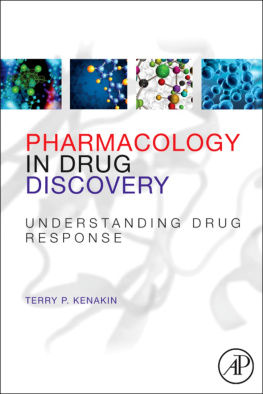

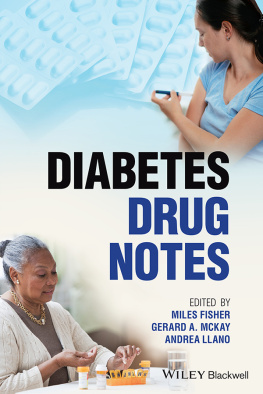
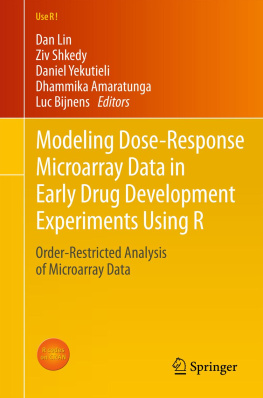
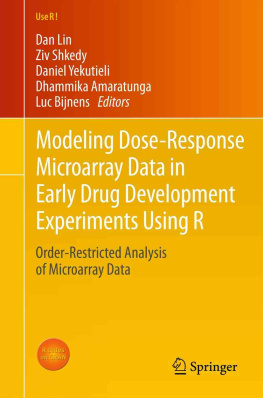
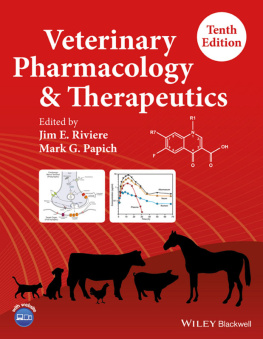
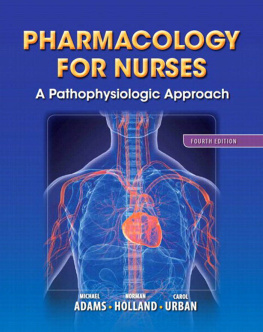
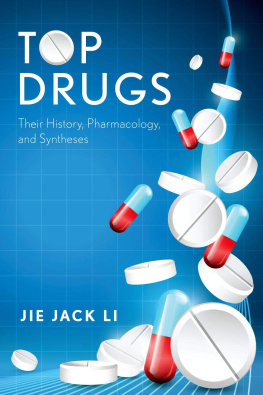
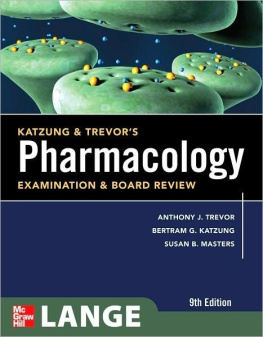
 AMSTERDAM BOSTON HEIDELBERG LONDON NEW YORK OXFORD PARIS SAN DIEGO SAN FRANCISCO SINGAPORE SYDNEY TOKYO
AMSTERDAM BOSTON HEIDELBERG LONDON NEW YORK OXFORD PARIS SAN DIEGO SAN FRANCISCO SINGAPORE SYDNEY TOKYO 
